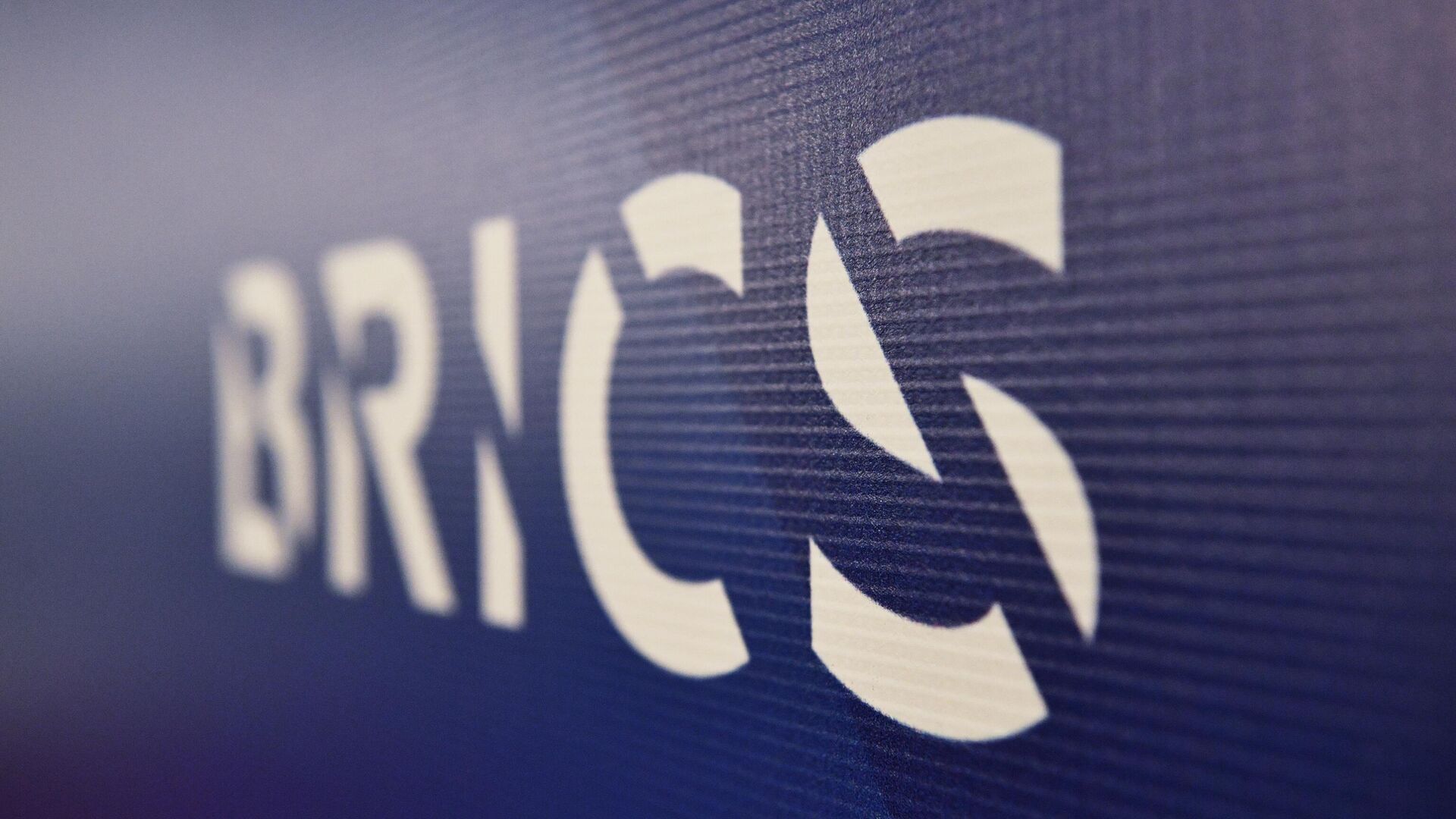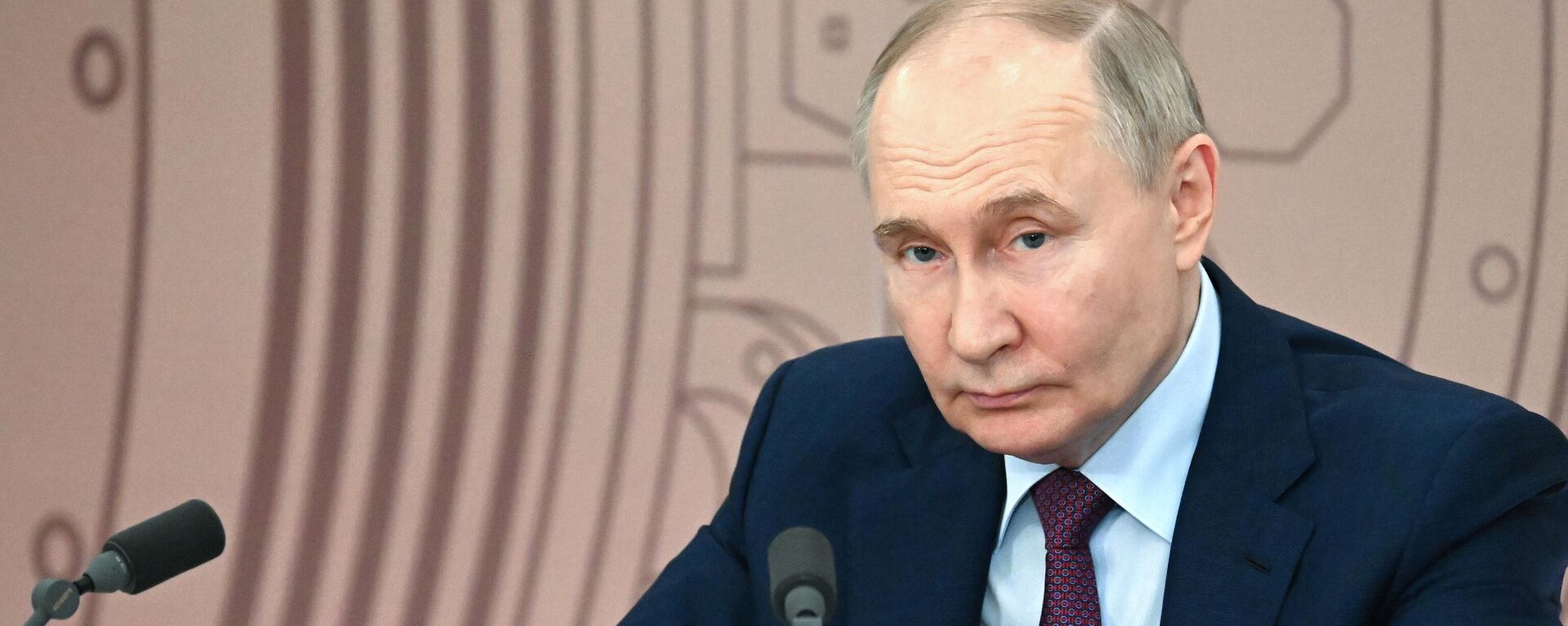https://sputnikglobe.com/20240717/brics-futurological-forum-modernization-doesnt-mean-westernization-1119398887.html
BRICS Futurological Forum: Modernization Doesn't Mean Westernization
BRICS Futurological Forum: Modernization Doesn't Mean Westernization
Sputnik International
It is impossible to build a just world order and future intercivilizational relations at the national and international level without taking into account the past years' experience of transformations, Marta Fernandez, Director of the BRICS Policy Center at the Pontifical Catholic University of Rio de Janeiro, said in an interview with Sputnik.
2024-07-17T07:40+0000
2024-07-17T07:40+0000
2024-07-17T07:48+0000
world
brics
forum
international
relations
https://cdn1.img.sputnikglobe.com/img/07e6/06/17/1096603406_0:160:3073:1888_1920x0_80_0_0_64f767e1c83a58c44342ab703000b01f.jpg
According to her, the forum participants agreed that the dominant Western view that modern development is inseparable from cultural Westernization is not the only correct one. In particular, she notes that each of the BRICS countries has its own unique experience in overcoming the harsh consequences of socio-economic and social transformations, as well as in implementing major infrastructure projects aimed at improving the lives of the population, "taking into account specific cultural and material circumstances". The scholar posits that the Western theory linking modernization with perpetual consumption contradicts the principles of sustainable development and the efforts to combat climate change."If you bring consumption to the level of the so-called Global North, it will lead to environmental catastrophe," she argues, noting that in many ways the West was able to achieve such socio-economic indicators through the exploitation of the Global South during the colonial and post-colonial periods. According to Fernandez, the BRICS alliance was initially formed on the principle of respecting national characteristics and differences, a principle that was reinforced with the expansion of membership last year."It seems to me that the association has built its identity in a way on this diversity, and this is not a weakness, but rather the strength of BRICS, in which respect for differences is a fundamental principle," the expert said, emphasizing the bloc's role in ensuring national interests while reforming the current system and instruments of international financial and economic relations and global governance.
https://sputnikglobe.com/20240711/putin-not-ruling-out-creation-of-brics-parliament-in-future-1119337827.html
Sputnik International
feedback@sputniknews.com
+74956456601
MIA „Rossiya Segodnya“
2024
Sputnik International
feedback@sputniknews.com
+74956456601
MIA „Rossiya Segodnya“
News
en_EN
Sputnik International
feedback@sputniknews.com
+74956456601
MIA „Rossiya Segodnya“
Sputnik International
feedback@sputniknews.com
+74956456601
MIA „Rossiya Segodnya“
brics forum, world order, intercivilizational relations, marta fernandez
brics forum, world order, intercivilizational relations, marta fernandez
BRICS Futurological Forum: Modernization Doesn't Mean Westernization
07:40 GMT 17.07.2024 (Updated: 07:48 GMT 17.07.2024) Speaking to Sputnik, Marta Fernandez, Director of the BRICS Policy Center at the Pontifical Catholic University of Rio de Janeiro, highlighted considering past years' experiences of transformations in order to successfully construct a just world order and foster future intercivilizational relations at both the national and international levels.
According to her, the forum participants agreed that the dominant Western view that modern development is inseparable from cultural Westernization is not the only correct one.
"The very concepts of civilization and modernity are in many ways contradictory, it is argued that in order to develop and look to the future it is necessary to somehow completely erase the past. In the Western understanding, the past is presented as something unworthy and subject to destruction, which seems strange. At this forum, on the contrary, we talked about the need to respect different cultures and to plan the future with diversity in mind," expert said.
In particular, she notes that each of the BRICS countries has its own unique experience in overcoming the harsh consequences of socio-economic and social transformations, as well as in implementing major infrastructure projects aimed at improving the lives of the population, "taking into account specific cultural and material circumstances".
The scholar posits that the Western theory linking modernization with perpetual consumption contradicts the principles of sustainable development and the efforts to combat climate change.
"If you bring consumption to the level of the so-called Global North, it will lead to environmental catastrophe," she argues, noting that in many ways the West was able to achieve such socio-economic indicators through the exploitation of the Global South during the colonial and post-colonial periods. According to Fernandez, the
BRICS alliance was initially formed on the principle of respecting national characteristics and differences, a principle that was reinforced with the expansion of membership last year.
"It seems to me that the association has built its identity in a way on this diversity, and this is not a weakness, but rather the strength of BRICS, in which respect for differences is a fundamental principle," the expert said, emphasizing the bloc's role in ensuring national interests while reforming the current system and instruments of international financial and economic relations and global governance.



